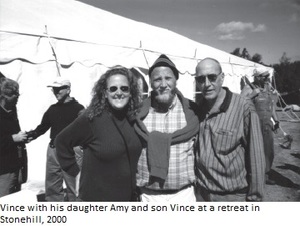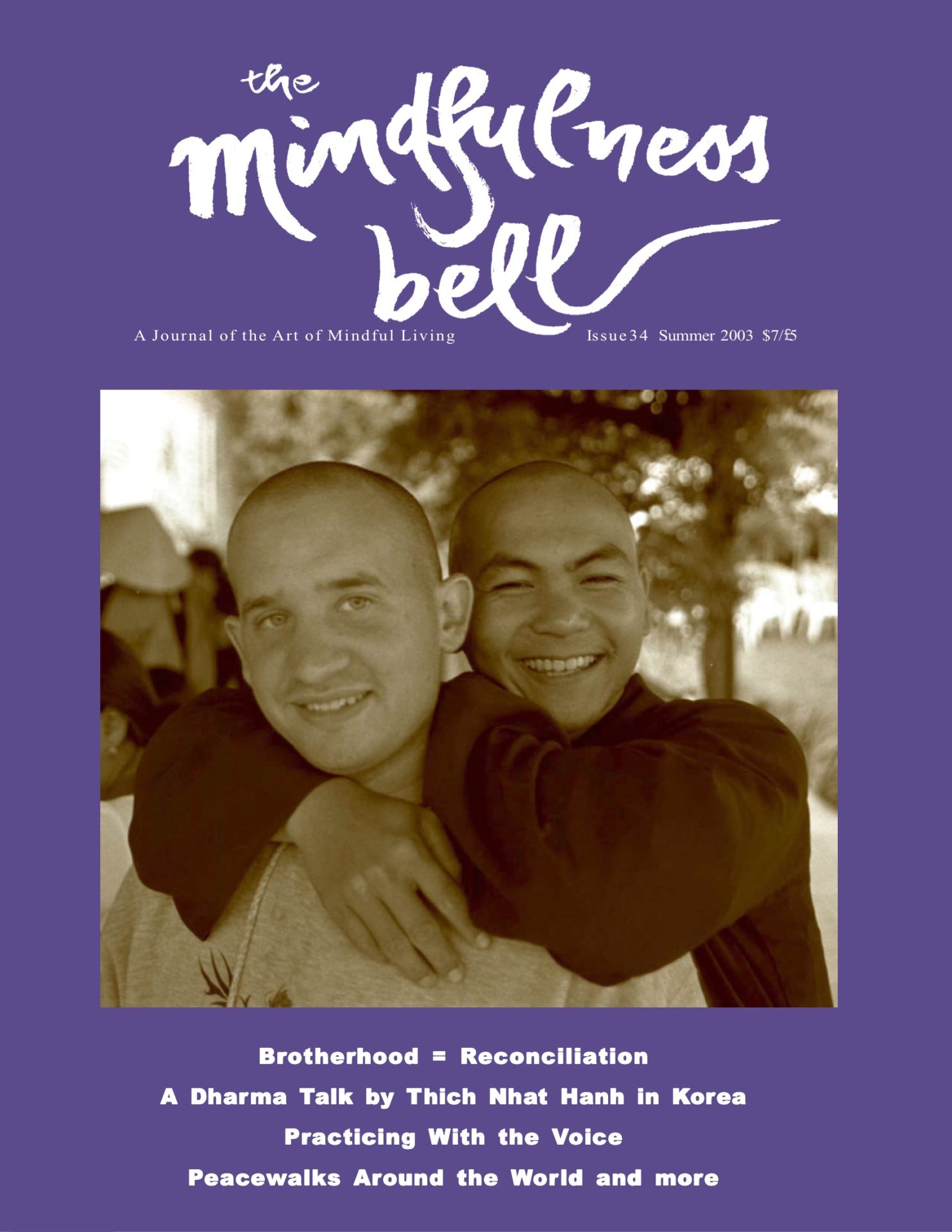
By Vince Rogalski, Sr.
I am a Vietnam combat veteran. I grew up in a strict Catholic family, the second of five children. We were poor, living in a two-bedroom house in a rough neighborhood. My father worked hard all his life; my mom was a full time wife and mother.
As a young Catholic, I was an altar boy, choirboy, and even considered joining the priesthood.

By Vince Rogalski, Sr.
I am a Vietnam combat veteran. I grew up in a strict Catholic family, the second of five children. We were poor, living in a two-bedroom house in a rough neighborhood. My father worked hard all his life; my mom was a full time wife and mother.
As a young Catholic, I was an altar boy, choirboy, and even considered joining the priesthood. But I was not an angel by any means. In our neighborhood, you needed to be tough or at least appear to be tough to get along. I got along. I always disliked school, even though I did pretty well most of the time.
I left college in 1967, and that November I was drafted. Five months later I was in Vietnam. My story is like many who saw heavy combat. It’s enough to say the experience is one I have never forgotten. I will always be a Vietnam veteran.
I returned in May of 1968 with an Army Commendation Medal, a Bronze Star, and some Purple Hearts. But the pride and honor I felt was short-lived, and I soon realized that the wounds I came home with weren’t the kind that bled.
I was married two weeks after returning. My wife and I spent the remaining six months of my service in Colorado. We wanted a family, and my son was born in 1970, and my daughter two years later.
It was a struggle to make ends meet and the situation became desperate in 1973 when I was diagnosed with serious ulcers. I had three major surgeries and spent twenty-five days in the Intensive Care Unit where I almost died.
After that, I was out of work for a long time. We lost the house we had been buying. With creditors knocking on our door, I went back to work against my doctor’s advice. I sank into a depression but was too proud to seek professional help. I felt that since I had gone through a war, I should be able to handle anything. I felt that the government didn’t care about me so I couldn’t turn there for help.
For a couple of years I did everything I could think of to improve our situation. I took a second job, I worked overtime, I went back to school. But our situation didn’t improve. So I resorted to escaping in drugs and alcohol to numb my pain. In 1976, I got a bunch of pills and a lot of booze and tried to kill myself, but instead I spent sixteen weeks in a locked ward at the Johns Hopkins mental hospital. There I was diagnosed with a war neurosis. I’d been having nightmares at night and in the daytime too. They called them flashbacks. I called them day mares. I got out of the hospital but I was still messed up. I finally started to see a psychiatrist through a new government outreach program for vets. I’ve been in some type of professional therapy ever since.
For the next twenty-two years, with the help of medication and counseling, I managed to keep my head above water, but just barely. During all these years, I couldn’t get close to people. I thought I didn’t trust them. What I came to realize was that I didn’t trust myself. After my parents died and my children were married, I left my wife. I honestly believe she’s better off without me. I knew that she could never forgive me or forget or let me forget. That was a big part of the problem. I couldn’t forget! The memories, the depression, the loss of my faith and self-esteem, all bore down once again. I was determined not to see the new millennium. This time I was going make sure my suicide attempt was successful. A bottle of liquor, all the pills I had at my disposal, and my quiet apartment was all I needed. But once again I failed. A worried friend came over and found me unconscious. This led to six months of intense treatment in four different mental institutions and six shock therapy treatments.
During this time, my son sent me a copy of a book titled Being Peace. The author was a Vietnamese monk named Thich Nhat Hanh. I am not a reader, but I had a lot of time on my hands at that particular moment so I read it. I felt a change in my perspective. I got another book called Touching Peace. After I finished it, I realized that I was thinking about the things I had read at least a little each day. I had never meditated before, but I tried it. I was still depressed and very unsure, but I seemed to be becoming calmer and more at peace.
The following year, 1999, my son told me about a retreat with Thich Nhat Hanh at the Omega Institute. We went together. There was a veteran’s group there who welcomed both me and my son, which surprised both of us.
We experienced that though the people in the group were not all vets, they were all connected somehow. Not just connected by the war but connected to one another in a much more special way. Soon my son and I felt connected too. They were warm, loving, and honestly caring. Then we heard Thich Nhat Hanh speak about the way this Sangha practiced together and we began to understand more. We became a member of their family. It felt good to be hugged and in a very short while, I felt as if I’d known these people all my life. But more than that, I cared about them and somehow, I knew they really cared about me. It was hard to leave.
We went home and shared our experiences at the retreat and the next year we returned, bringing my daughter. She experienced the same warm welcome. It was a great thing: my son, my daughter, and I were having this experience together. I have never felt closer to my children. They have always been the center of my life but this practice has brought us together in a way that is hard to explain. We went to the retreat again last year and I’m sure we’ll go again.
Thich Nhat Hanh is a powerful, yet soothing teacher. His teachings haven’t solved my problems, but they have allowed me to slow down enough to see myself and others more clearly. I still feel much pain, guilt, and regret about the past. I also feel there is much to be thankful for. If it were not for my friend finding me unconscious, I would not be here now. I would have missed knowing my children, their spouses, and my three terrific grandchildren.
I’m not sure what a miracle is but for me it’s having hope where once there was none. I am now struggling with the realization that I have been diagnosed with leukemia and more recently Hepatitis C. I don’t expect miracles. I am only trying for hope and peace. Thich Nhat Hanh, the veterans’ Sangha, my daughter, Amy, my son, Vince, and my friend Kathy, have given me hope. I will always be a Vietnam veteran. I can neither forget nor change that. I now feel I have the strength to be other things. I hope it’s not too late to find peace.
Vince Rogalski, Sr. lives outside Baltimore, Maryland, where he is a government audit coordinator at Northrup Grumman. He continues to practice mindfulness with his son and daughter, and their families.
The Veteran’s Scholarship Fund is used exclusively to assist those who wish to join the Veteran’s Sangha at Thay’s retreats who otherwise might not be able to attend. The Veteran’s Sangha is committed to helping vets and family members process their feelings concerning the trauma of war. Contributions would be gratefully appreciated, and should be sent to Green Mountain Dharma Center, c/o Joyce, PO Box 182, Hartland Four Corners, VT 05049

